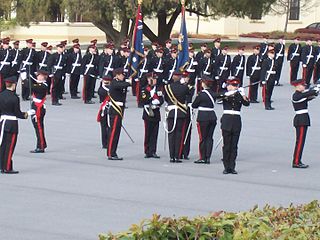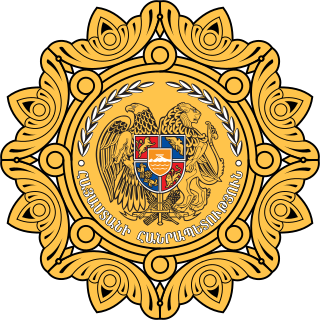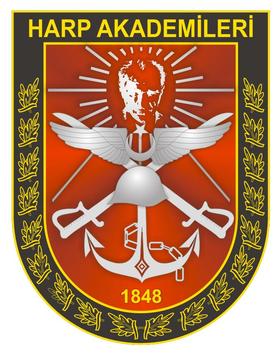This article needs additional citations for verification .(May 2020) |
Armed Forces Nursing Academy is a college located in Yuseong-gu, Daejeon, South Korea.
This article needs additional citations for verification .(May 2020) |
Armed Forces Nursing Academy is a college located in Yuseong-gu, Daejeon, South Korea.
The Armed Forces Nursing Academy of Korea is a four-year university. It was established for the purpose of providing individuals aspiring to become nurse officers of the Armed Forces with necessary education. To complete the nursing degree one must complete two sets of courses. The first are military courses prescribed by the Minister of National Defense. The other courses are general courses prescribed by the Minister of National Defense in collaboration with the Minister of Education. [1]
| | This section is empty. You can help by adding to it. (May 2020) |
The superintendent is appointed by the Minister of National Defense from among general officers. [1]
“Professors and associate professors shall be appointed by the President with a recommendation by the Minister of National Defense, assistant professors shall be appointed by the Minister of National Defense with a recommendation by the Superintendent, and teaching assistants shall be appointed by the Superintendent.” [1]
All attendees of the academy will be registered into the military upon admission. One may not be younger than 17 years old or older than 21 years older and must be unmarried. One must also meet the physical standards of the Nursing Academy and have the educational background required. Those who successfully graduate and pass the national nursing examination will be commissioned as a second lieutenant in the Korean Military. Graduates will also obtain their Bachelors in Nursing. Those who fail will be removed from the military registry. [1]
During the time of the Japanese occupation, Korea's health care facilities and nursing education had been disorganized. [2] The education and nursing system lacked a lot of resources and information that was needed for the profession. They also lacked the means to be able to educate others in the field properly. [3] In 1946, the U.S military had unified the nursing education. They standardized the curriculum for Korea and helped provide instruction for the faculty in the nursing education facilities. During the Korean War both Korean and American nurses played a large role. However, after the war Korea had to focus on reestablishing and furthering the Korean nursing education. As a part of nursing education, emphasis had been placed on midwifery as well. [3]

A military academy or service academy is an educational institution which prepares candidates for service in the officer corps. It normally provides education in a military environment, the exact definition depending on the country concerned.

A commander-in-chief or supreme commander is the person who exercises supreme command and control over an armed force or a military branch. As a technical term, it refers to military competencies that reside in a country's executive leadership, a head of state, head of government, or other designated government official.

Executive Order 9981 was an executive order issued on July 26, 1948, by President Harry S. Truman. It abolished discrimination "on the basis of race, color, religion or national origin" in the United States Armed Forces. The Order led to the re-integration of the services during the Korean War (1950–1953). It was a crucial event in the post-World War II civil rights movement and a major achievement of Truman's presidency. For Truman, Executive Order 9981 was inspired, in part, by an attack on Isaac Woodard who was an American soldier and African American World War II veteran. On February 12, 1946, hours after being honorably discharged from the United States Army, he was attacked while still in uniform by South Carolina police as he was taking a bus home. The attack left Woodard completely and permanently blind. President Harry S. Truman ordered a federal investigation.
A junior college is a type of post-secondary institution that offers vocational and academic training that is designed to prepare students for either skilled trades and technical occupations or support roles in professions such as engineering, accountancy, business administration, nursing, medicine, architecture, and criminology. Often times, those types of colleges offer 2-year associate's degrees that are intended for students that want to later transfer to a 4-year bachelor's degree to finish their undergraduate education, pending adequate grades. Students typically attend those types of colleges for 1-3 years, which is also dependent on the country.

The United States Merchant Marine Academy is a United States service academy in Kings Point, New York. It trains its midshipmen to serve as officers in the United States Merchant Marine, branches of the United States Armed Forces, and the transportation industry. Midshipmen are trained in marine engineering, navigation, ship's administration, maritime law, personnel management, international law, customs, and other subjects important to the task of running a large ship.
The Bachelor of Science in Nursing also known in some countries as a Bachelor of Nursing (BN) or Bachelor of Science (BS) with a Major in Nursing is an academic degree in the science and principles of nursing, granted by an accredited tertiary education provider. The course of study is typically three or four years. The difference in degree designation may relate to the amount of basic science courses required as part of the degree, with BScN and BSN degree curriculums requiring completion of more courses on math and natural sciences that are more typical of BSc degrees and BN curriculums more focused on nursing theory, nursing process, and teaching versions of general science topics that are adapted to be more specific and relevant to nursing practice. Nursing school students are generally required to take courses in social and behavioral sciences and liberal arts, including nutrition, anatomy, chemistry, mathematics, and English. In addition to those courses, experience in physical and social sciences, communication, leadership, and critical thinking is required for a bachelor's degree. BSN programs typically last 2–4 years. Someone who holds a BSN can work in private or public medical and surgical hospitals, physician's offices, home health care services, and nursing facilities. Having a BSN can result in more opportunities and better salary than just an associate degree.

Uniformed Services University of the Health Sciences (USU) is a health science university and professional school of the U.S. federal government. The primary mission of the school is to prepare graduates for service to the U.S. at home and abroad as uniformed health professionals, scientists and leaders; by conducting cutting-edge, military-relevant research; by leading the Military Health System in key functional and intellectual areas; and by providing operational support to units around the world.

Tang Fei is a retired ROC Air Force general. He served as the prime minister of Taiwan from May 20 to October 2000, under the Chen Shui-bian government of the Democratic Progressive Party (DPP). However, as a member of the Kuomintang (KMT), he did not agree with Chen and the DPP's policies, he chose to step down five months after assuming premiership.

Anna Mae Violet Hays was an American military officer who served as the 13th chief of the United States Army Nurse Corps. She was the first woman in the United States Armed Forces to be promoted to a general officer rank; in 1970, she was promoted to brigadier general. Hays paved the way for equal treatment of women, countered occupational sexism, and made a number of recommendations which were accepted into military policy.

The United States (U.S.) Cadet Nurse Corps (CNC) for women was authorized by the U.S. Congress on 15 June 1943 and signed into law by president Franklin D. Roosevelt on 1 July. The purpose of the law was to alleviate the nursing shortage that existed before and during World War II. The legislative act contained a specific provision that prohibited discrimination based upon race, color, or creed. The United States Public Health Service (USPHS) was named the supervisory agency; it was answerable to Thomas Parran, Jr. the surgeon general of the United States. The USPHS established a separate division to administer the CNC program and Parran appointed Lucile Petry a registered nurse (RN) as its director.

The president of the Republic of Artsakh is the head of state and head of government of the government-in-exile of the once de facto Republic of Artsakh.
Nursing management consists of the performance of the leadership functions of governance and decision-making within organizations employing nurses. It includes processes common to all management like planning, organizing, staffing, directing and controlling. It is common for registered nurses to seek additional education to earn a Master of Science in Nursing or Doctor of Nursing Practice to prepare for leadership roles within nursing. Management positions increasingly require candidates to hold an advanced degree in nursing.

Nursing in Australia is a healthcare profession. Nurses and midwives form the majority (54%) of Australian health care professionals. Nurses are either registered or enrolled. Registered nurses have broader and deeper education than enrolled nurses. Nurse practitioners complete a yet higher qualification. Nurses are not limited to working in hospitals, instead working in a variety of settings. Australian nurses are in demand as traveling nurses, particularly those with advanced qualifications.

The term military medicine has a number of potential connotations. It may mean:

Brigadier General Robin Umberg, Deputy Commander Clinical Services 3rd Medical Command, is one of several female United States Army general officers.

Fahd Jassem al-Freij is a retired Syrian military officer and the former Minister of Defense of Syria, took office on 18 July 2012 and left office on 1 January 2018.

The president of Armenia is the head of state and the guarantor of independence and territorial integrity of Armenia elected to a single seven-year term by the National Assembly of Armenia. Under Armenia's parliamentary system, the president is simply a figurehead and holds ceremonial duties, with most of the political power vested in the parliament and prime minister.

Turkish War Academies was an educational branch of the Turkish Armed Forces. It trained staff officers for Turkish Armed Forces.
The Worshipful Company of Nurses is a livery company in the City of London.

National Defense University is a military university established in 2016 and primarily located in Beşiktaş, Istanbul. The university education and training started with the ceremony held on 12 February 2017 at the Air Force Academy. It is a continuation of the Turkish War Academies.
36°24′5.224″N127°20′58.826″E / 36.40145111°N 127.34967389°E